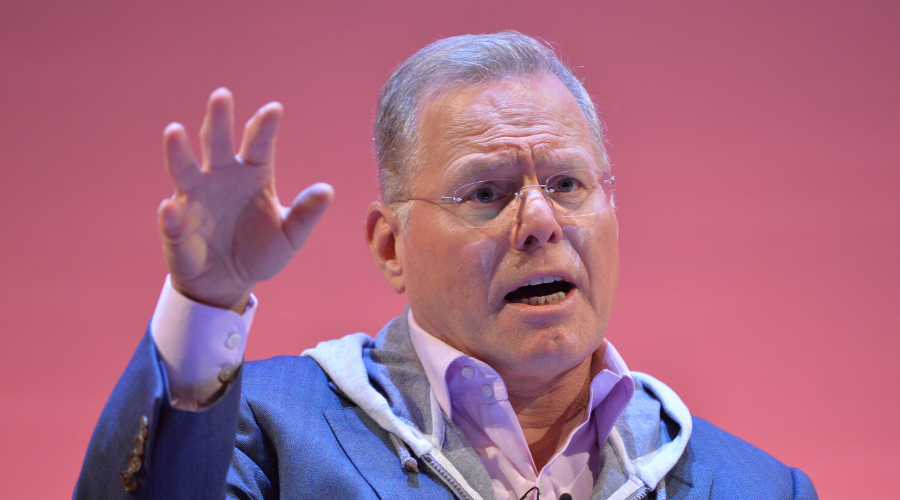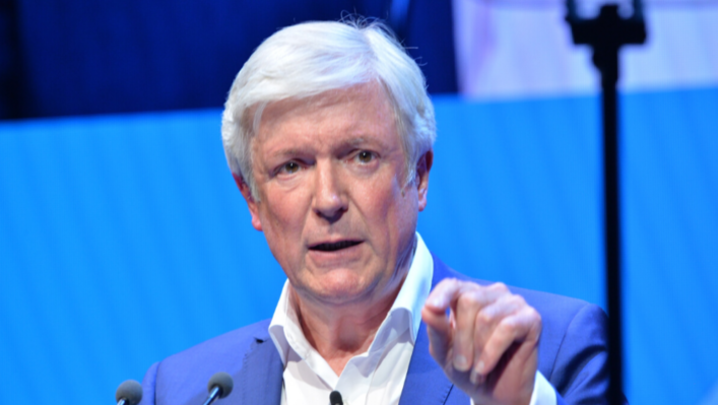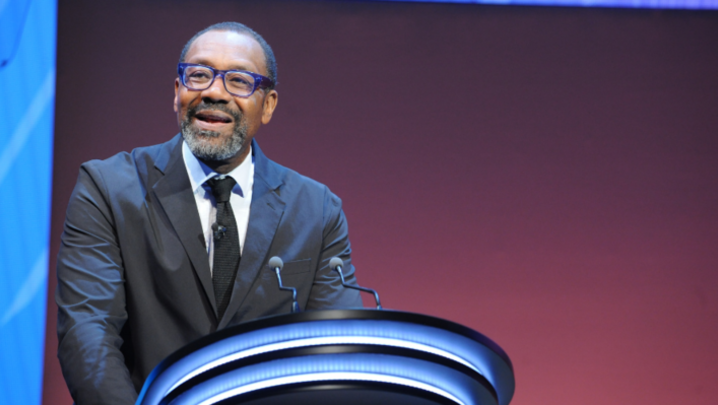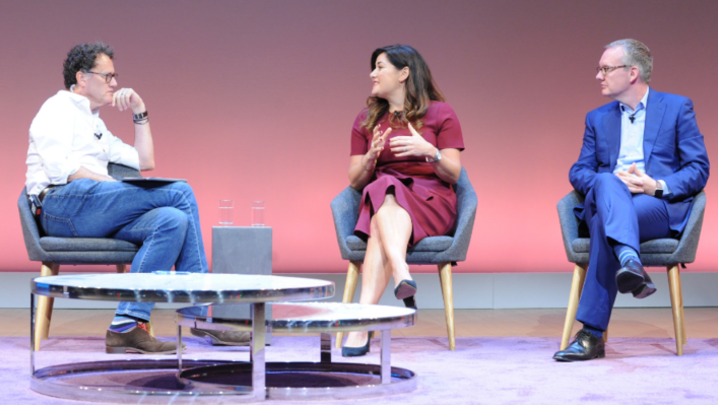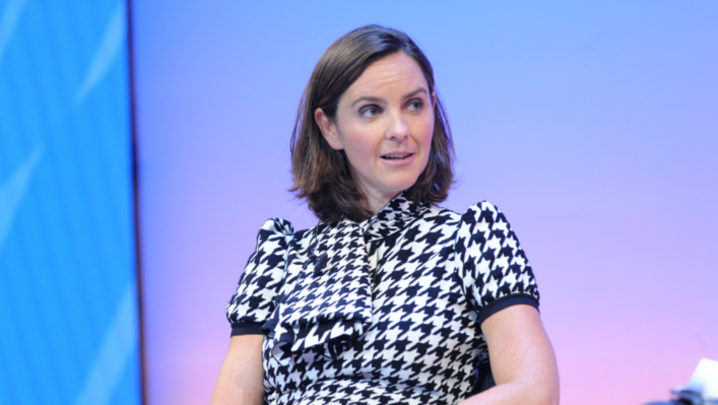Discovery’s dominance in factual TV will preserve it from the consolidation feeding frenzy, believes its CEO
Documenting the planet with the BBC, differentiating Discovery from Netflix and the other streamers – and taking Amazon on at its own retail game – were the three big themes expounded by Discovery’s President and CEO, David Zaslav.
With Discovery now the second largest TV company in the US in terms of reach, Zaslav candidly laid out his company’s ambitions. Whereas Amazon built its billions in retail and then moved into TV, he said Discovery is doing the reverse. It has hired the brains behind Amazon’s e-commerce platform Marketplace and around 150 product development and technology staff, after lessons were learnt from going direct to consumer during the building of Dplay and Eurosport Player.
Zaslav explained the thinking behind the move: “Netflix has 150 million people who pay and do nothing else.
“If we can aggregate millions of people who are watching but they’re also buying a bicycle, a vacation or food… We have a ‘view and do’ concept that, ultimately, from a multiple perspective, in terms of creating value, could be enormous.”
Interestingly, “view and do” was ruled out for Netflix the following day by its Chair and CEO, Reed Hastings, but it was not the only differential that Zaslav said Discovery had created.
“We’re at a very interesting time and we’ve chosen a path that’s quite differentiated and we feel good about it… we need all of your help because it’s really going to be about great content. But we’re a very different company than everybody else.
“If you’re going to be in the general entertainment, scripted movie business, then you have to have a massive amount of content. You’re trying to appeal to everyone; 750 million people here in Europe.”
He went on: “There [are] eight great [streaming] companies; maybe, in the end there’ll only be four [because] they’re going to have to buy each other, because it’s going to get so confusing. I do think there’ll be more consolidation.
“There will be a few of those who are successful. That’s not who we are. I think that gives us a unique advantage – we’re out of that business.”
He summed up his tactic as, “We’re just going to lean aside and let those guys have their way with each other.”
Asked by broadcaster Kate Silverton if Discovery might be bought, Zaslav said: “I hope not, because I love Discovery.” A prime example of the battle going on between the big streamers, he said, was the reported $600m paid by HBO Max for The Big Bang Theory and $500m for Seinfeld by Netflix.
“Old series, massive cheques,” was how Zaslav described it, adding to laughter: “You know what that says? ‘Holy shit, we’re in trouble, we don’t have enough, what do the other seven guys have, go get it, I don’t care what you need to pay for it. It’s going to take us two to three years to develop something else – that exists, go get it.’
“That’s not the business we’re in. That’s why I think we’re going to be successful.”
Zaslav said that Discovery Networks International President and CEO JB Perrette and he constantly discussed the content that people would watch and pay for before and above anyone else.
“That’s why we bought all the golf in the world, outside of the US. That’s why we own most of the cycling in the world – and our ambition is to own all of the cycling.
‘[We] go into a country like China and say, “You want to see golf, we have it all”’
“That’s why we now have the majority of the science, history and environmental content, along with all the great brands that [BBC Studios] and Discovery have created.
“They [the new streamers] have to continue to fight because they are splitting it eight ways, but we own almost all the food content in the world, almost all the home content in the world, we own all the golf content in the world. That is going to create massive value over time; to go into a country like China and say, ‘You want to see golf, we have it all.’”
Recently, Discovery signed a deal with the BBC that will see the two broadcasters work together on new content but which also gives the US giant’s new streaming platform the rights to all BBC natural history shows for the next 10 years outside the UK, Ireland and China, the streaming rights to hundreds of hours of archive BBC documentaries, collaborations on new content, and UKTV channels Good Food, Home and Really.
'Our ambition is that we’re going to document the planet [with the BBC] '
Explaining part of the reason for the deal, the environmentally-conscious Zaslav said: “I was blown away by the idea that Blue Planet talked about plastics in the ocean; and the reaction to that here in the UK gave rise to Theresa May changing the laws on plastics… that was the moment where I said we have to go all in.
“We’ve structured a very broad collaboration with the BBC, where we will own, outside of the UK, all the natural history and science history content for over-the-top [platforms] and… we’re creating even more original content together over the next 10-plus years. But our ambition is that we’re going to document the planet together – maybe we could have a meaningful impact.”
Zaslav went on to say that the UK – where Discovery also owns 50% of All3Media – “is hugely important to us… we’re the largest international media company now”. He said the UK’s cultural bent and natural curiosity had helped Discovery become successful in Britain. He praised All3Media’s CEO, Jane Turton, and the UK’s “creative community”, warning the audience, “Don’t take it for granted.”
He repeatedly returned to the idea of “storytelling” and “characters” and the need for ever more content. Zaslav explained that, to keep up with viewers’ demands, presenters such as former tennis champion Chris Evert had been given iPhones to film short, behind-the-scenes extras or reflections for Eurosport Player.
A recent deal with Tiger Woods will pitch him in an international challenge with other golfers in a series called Skins. Furthermore, his caddy, best friend and others now film him to make even more content available for Discovery.
Another key series for Discovery is Steven Spielberg’s documentary series Why We Hate, which was first discussed between the director and Zaslav five years ago.
“It was Steven’s idea. I said to him, ‘What is the story you want to tell? The story that, when you and I are gone and they come back and look and say, “Who was Steven and what did he care about?”, what is that story?’ He thought about it for about two or three seconds and he said, ‘Why we hate.’
“Little did we know, five years ago, where we would be, not just here in the UK or in the US, but everywhere in the world. I felt like, for most of my life, things were getting better, [now] we find in the last five years that things are much more of a challenge and hate is much more on the rise.… We hope it begins a dialogue.”
In Session Six, ‘International keynote’, David Zaslav, President and CEO of Discovery, was interviewed by journalist and broadcaster Kate Silverton. The producer was Helen Scott. Report by Tara Conlan.

